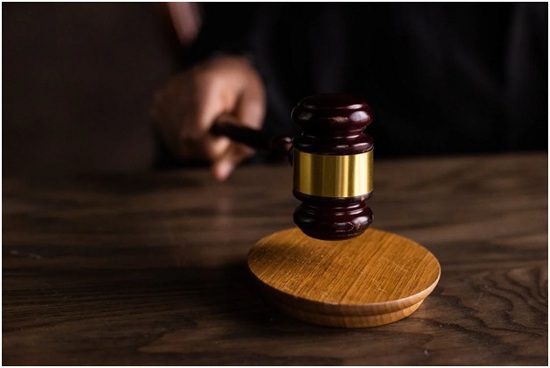A court hearing can be a very intimidating experience for someone who has never been through one before. If you are facing criminal charges, it is important to prepare yourself as best as possible for your first court appearance. In this blog post, we will provide 7 pieces of advice on how to prepare for your first court hearing. Following these tips will help ensure that you have the best chance possible of achieving a positive outcome in your case!


7 things to think about when preparing for your first court hearing
Court hearings can be very daunting, especially if it’s your first time. If you’re facing criminal charges, it’s important to do everything you can to prepare for your first appearance. From preparing your criminal defense to knowing what to wear, there are many things you can do to ensure this process goes smoothly. Now, understanding the charges against you may seem like an obvious one, but it’s important to have a clear understanding of the charges against you. Knowing the specific allegations will help you better prepare your defense. If you’re unsure about anything, be sure to ask your lawyer. It’s also important to remember that first impressions are very important in court. As you can see, there are many things you can do to prepare for your first court hearing. By following these tips, you’ll be in a much better position to achieve a positive outcome in your case!
1. Get a good night’s sleep before the court hearing and a healthy breakfast
This will help you to be alert and focused during the proceedings. A good night’s sleep will also help to ease any nerves you may be feeling. Breakfast is the most important meal of the day, so make sure you have a nutritious one! This will help to keep your energy levels up and sustain you throughout the court hearing. Some people also find it helpful to meditate or do some form of relaxation exercise before a big event.
2. Arrive at the courthouse early, so you can get settled and prepare
If you can, try and arrive at the court early on the day of your hearing. This will give you time to familiarize yourself with the surroundings and ease any nerves you may be feeling. It’s also important to make sure you have all the necessary documents with you when you go to court. These might include things like a copy of the charges against you, any letters or documents from your lawyer, and any character references you may have. If you don’t have all the required documentation with you, the court proceedings will likely be adjourned until another day. This can be very costly and stressful, so it’s best to avoid it if at all possible.
3. Dress neatly and conservatively
First impressions are important, so you want to make sure you’re dressing appropriately for court. This means avoiding anything too casual or flashy. Stick to more muted colors and simple styles. You also want to make sure your clothing is clean and pressed. First, because it will show that you respect the court and take the proceedings seriously. Secondly, because you want the judge or jury to focus on your defense, not what you’re wearing. If you’re not sure what to wear, it’s always best to be on the side of caution and dress more conservatively.
4. Be respectful to everyone in the courtroom
This includes the judge, jury, lawyers, court staff, and even the person you’re accused of harming. It’s important to remember that everyone in the courtroom is there to do a job. The way you act and speak will be taken into consideration when the verdict is being decided, so it’s best to err on the side of caution and be respectful at all times. This doesn’t mean you have to be a doormat, but it does mean being polite and not saying anything that could be construed as disrespectful.
5. Pay attention to everything that is happening during the hearing
This will help you understand the proceedings better and also help you prepare for any questions you may be asked. It can be easy to get distracted, especially if the hearing is long or complex. But it’s important to focus as much as possible, so you can be fully prepared for what’s to come. Every little detail could be important, so you don’t want to miss anything. By paying attention, you’ll also be able to get a better idea of how the judge or jury is reacting to the case. This can be helpful information for your lawyer.
6. Allow your attorney to lead the case
If you have an attorney, it’s important to let them take the lead. They will know what information is most important and how best to present the entire case to the courthouse. It’s also important to trust your attorney and follow their advice. They are the experts, after all. If you have any concerns, make sure to discuss them with your attorney before the hearing, so they can be addressed. Moreover, it can be hard on you, emotionally, to sit through the hearing and not say anything. However, it’s usually best to let your attorney do the talking and, generally, follow his instruction throughout the hearing.


7. Be prepared to discuss the case with your attorney afterward
After the hearing, you will likely have some questions. It’s important to go over the case with your attorney, so you can understand what happened and why. This is also a good time to discuss any concerns you may have or anything you didn’t understand during the hearing. Your attorney should be able to give you a clear and concise explanation of what occurred and what the next steps are.
Preparing for your first court hearing can be a daunting task, but it’s important to be as prepared as possible. By following these seven pieces of advice, you can help ensure that things go smoothly and that you present yourself in the best light possible. Remember, first impressions are important, so dress conservatively, be respectful, and pay attention to everything that’s happening. And if you have an attorney, let them lead the way and be prepared to discuss the case afterward. With a little preparation, you can help make sure your first court hearing is a success.
















